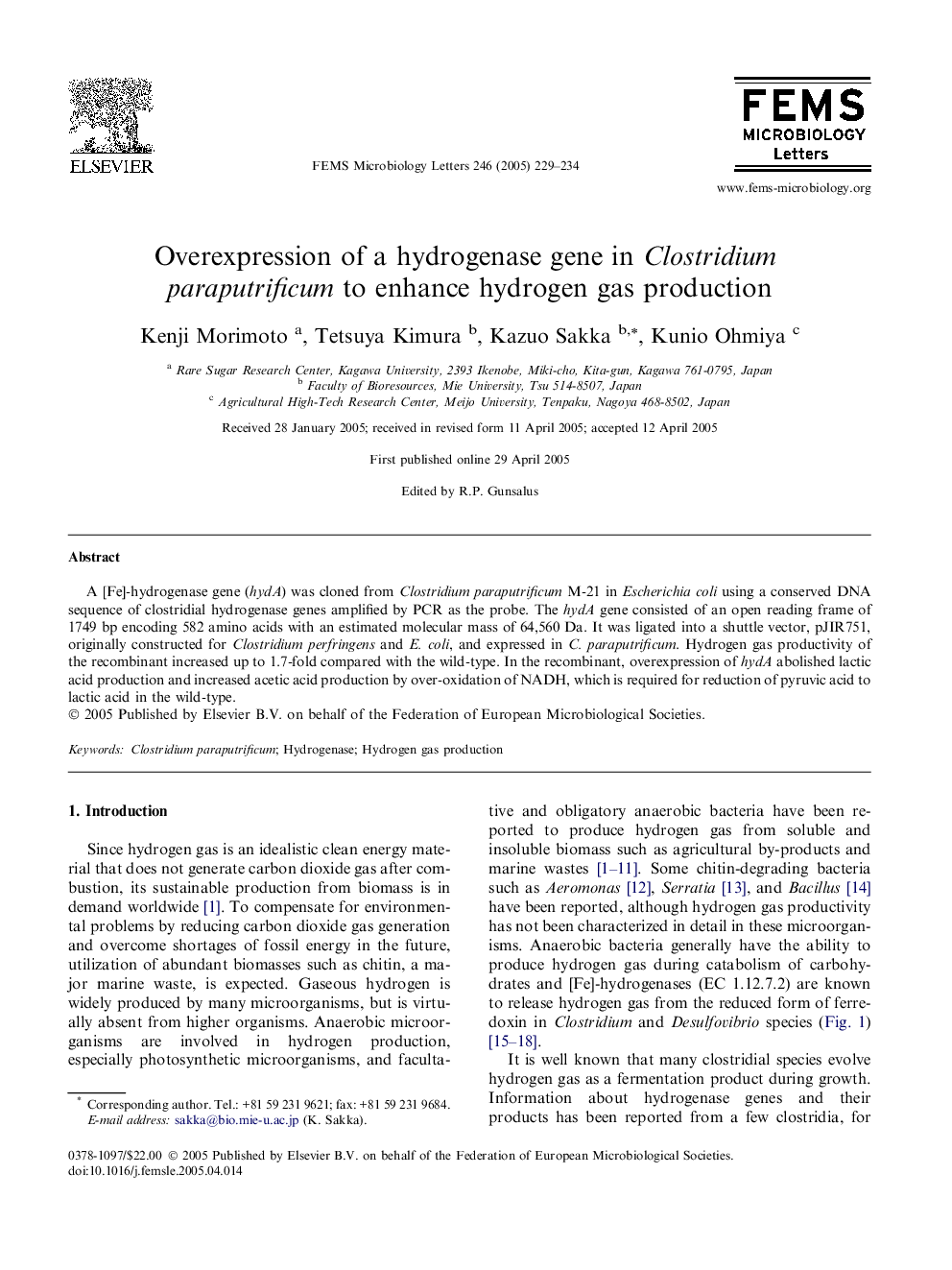| Article ID | Journal | Published Year | Pages | File Type |
|---|---|---|---|---|
| 9121783 | FEMS Microbiology Letters | 2005 | 6 Pages |
Abstract
A [Fe]-hydrogenase gene (hydA) was cloned from Clostridium paraputrificum M-21 in Escherichia coli using a conserved DNA sequence of clostridial hydrogenase genes amplified by PCR as the probe. The hydA gene consisted of an open reading frame of 1749 bp encoding 582 amino acids with an estimated molecular mass of 64,560 Da. It was ligated into a shuttle vector, pJIR751, originally constructed for Clostridium perfringens and E. coli, and expressed in C. paraputrificum. Hydrogen gas productivity of the recombinant increased up to 1.7-fold compared with the wild-type. In the recombinant, overexpression of hydA abolished lactic acid production and increased acetic acid production by over-oxidation of NADH, which is required for reduction of pyruvic acid to lactic acid in the wild-type.
Related Topics
Life Sciences
Biochemistry, Genetics and Molecular Biology
Genetics
Authors
Kenji Morimoto, Tetsuya Kimura, Kazuo Sakka, Kunio Ohmiya,
